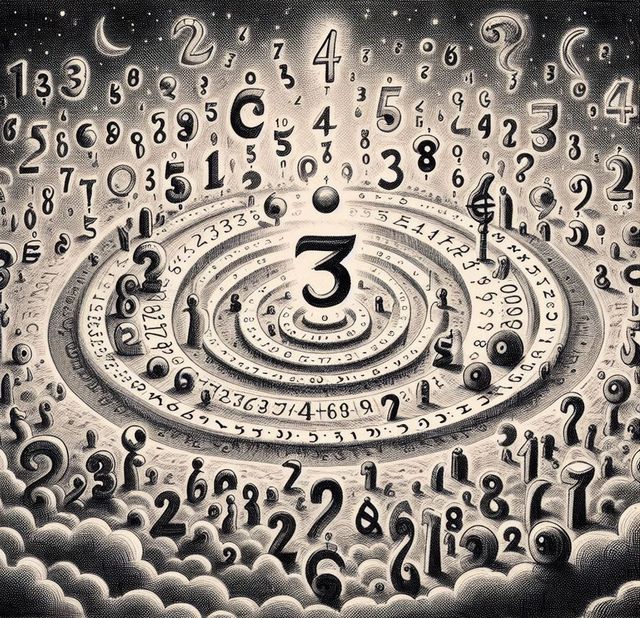-
Vijay Fafat
- Published on
This short story by [renowned philosopher and mathematician Bertrand] Russell is a mild satire on numerology, taking [Sir Arthur] Eddington’s obsession with it and spinning it as a “nightmare” of one Prof. Squarepunt. In the dream, the professor sees all the numbers standing around in concentric circles with Pi at the center, lording over them (at one point, the text goes: “Pi waved his conductor’s baton and proclaimed in a voice of thunder: ‘Silence! Or you shall all become incommensurable.’ All turned pale and Submitted”)
As the numbers introduce themselves to the professor, they recount the properties which make them special. The proceedings are disrupted by a minor revolt by Number 137 (supported by Sir Eddington), which wants freedom from the oppressive rule:
“You are right! It is their metaphysic that I cannot bear. They still pretend that they are eternal, though long ago their conduct showed that they think no such thing. We all found Plato’s heaven dull and decided that it would be more fun to govern the sensible world. Since we descended from the Empyrean we have had emotions not unlike yours: each Odd loves its attendant Even; and the Evens feel kindly towards the Odds, in spite of finding them very odd. Our empire now is of this world, and when the world goes pop, we shall go pop too.”
Number 137, of course, is the near inverse of the fine structure constant in Physics and Eddington’s numerology maintained that the constant really should be exactly equal to 1/137. As Russell puts it, “But it was above all in physics that 137 showed its prowess, which was not unlike that attributed to the number 666.”
As he awakes from his sleep, “With a banshee wail, the whole vast array dissolved in mist. And, as he woke, the Professor heard himself saying, “So much for Plato!”

